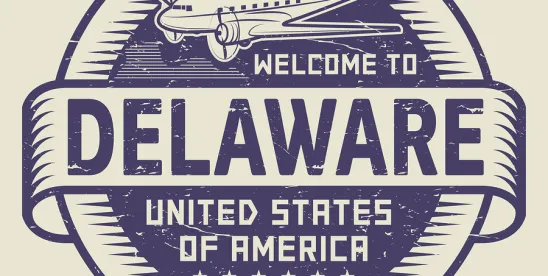In Dietrichson v. Knott, C.A. No. 11965-VCMR (Del. Ch. Apr. 19, 2017), the Chancery Court dismissed the entire complaint brought by one member of a limited liability company against another member for paying himself an unauthorized salary and misappropriating the proceeds of a sale of the company’s assets, concluding that the claims made were derivative rather than direct stockholder claims. The Court also held that plaintiff’s claims were not “dual-natured” (i.e., having both direct and derivative aspects), because the plaintiff failed to plead that the transaction resulted in both an improper transfer of economic value and voting power from the minority equity holders to the controlling equity holder.
Plaintiff Aleksander Dietrichson (“Dietrichson”) and defendant Martin G. Knott (“Knott”) formed NxGenEd, LLC (the “Company”) on September 25, 2014. Dietrichson and Knott were each members, directors, and officers of the Company. Pursuant to the Company’s operating agreement, both Dietrichson and Knott, as members, were entitled to certain distributions, but no salary. Additionally, the operating agreement also required the board of directors to approve any salary to a director, but it gave Knott the decision making authority in the event of a deadlocked board.
Facing liquidity issues, in June 2015, the Company entered into an Asset Purchase Agreement with Blackboard, Inc.to purchase substantially all of the Company’s assets for $250,000. In November 2015, when Dietrichson obtained the Company’s bank statements, he discovered transfers of $137,398.91 to Knott since January 2015. On February 5, 2016, Dietrichson filed a complaint against Knott and the Company alleging breaches of fiduciary duties and waste by Knott for either paying himself an unauthorized salary or misappropriating the proceeds of an asset sale. Dietrichson also alleged that Knott breached the Company’s operating agreement and unjustly enriched himself, on the theory that Knott’s behavior deprived Dietrichson of contractually-mandated distributions.
In ruling on Knott’s motion to dismiss the complaint, the Chancery Court addressed whether Dietrichson’s breach of fiduciary duty and waste claims were derivative of the Company’s claims. Preliminarily, the Chancery Court recognized that the derivative suit is a corporate concept that similarly applies to limited liability companies. Pursuant to the Delaware Supreme Court’s decision in Tooley v. Donaldson, Lufkin & Jenrette, Inc., a Delaware Court must apply a two part test to determine whether a claim is direct or derivative: “(1) who suffered the alleged harm (the company or the suing stockholder, individually); and (2) who would receive the benefit of any recovery or other remedy (the company or the stockholder, individually).” In this case, the Chancery Court held that Dietrichson’s breach of fiduciary duty and waste claims were exclusively derivative of those of the Company because he pled harm to the Company, in that the Company’s funds were wrongfully depleted, and he requested relief for the Company in seeking to avoid the transfers to Knott.
The Chancery Court then addressed Dietrichson’s argument that if his breach of fiduciary duty and waste claims were not direct, they were at least dual-natured claims. The Delaware Supreme Court has recognized, most recently in El Paso Pipeline GP Co., LLC v. Brinkerhoff, that claims have both direct and derivative aspects in certain specific circumstances — namely when the action involves a controlling equity holder and transactions that resulted in an improper transfer of both economic value and voting power from the minority holder to the controlling holder. The Chancery Court reasoned that because Dietrichson did not allege any dilution of voting power in his case, his stated claims were not “dual-natured.”
Finally, because Dietrich did not plead particularized facts either that he made a demand on the board of directors to take action and demand was wrongly refused, or that such demand would have been futile, his breach of fiduciary claims were dismissed.
The Chancery Court also dismissed Dietrichson’s claims for breach of contract and unjust enrichment for being unripe and unavailable, respectively.
Dietrichson v. Knott, C.A. No. 11965-VCMR (Del. Ch. Apr. 19, 2017)




 />i
/>i
